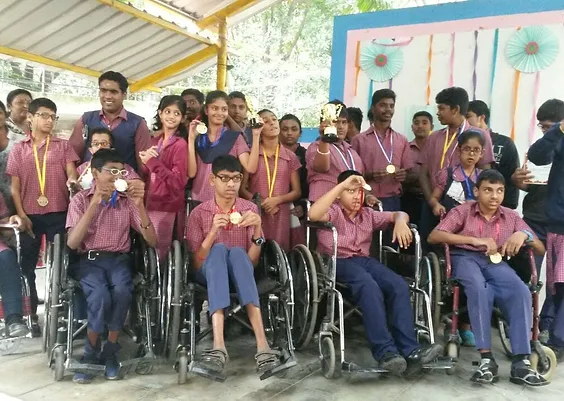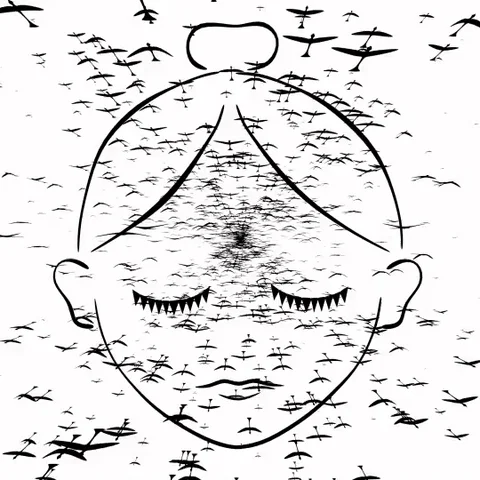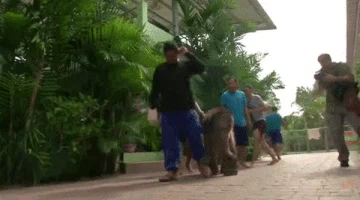- January 2023
- December 2022
- November 2022
- October 2022
- September 2022
- August 2022
- July 2022
- June 2022
- May 2022
- April 2022
- March 2022
- February 2022
- January 2022
- December 2021
- November 2021
- October 2021
- September 2021
- August 2021
- July 2021
- June 2021
- May 2021
- April 2021
- March 2021
- February 2021
- January 2021
- December 2020
- November 2020
- October 2020
- September 2020
- August 2020
- July 2020
- June 2020
- May 2020
- April 2020
- March 2020
- February 2020
- January 2020
- December 2019
- November 2019
- October 2019
- September 2019
- August 2019
- July 2019
- June 2019
- May 2019
- April 2019
- March 2019
- February 2019
- January 2019
- December 2018
- November 2018
- October 2018
- September 2018
- August 2018
- July 2018
- June 2018
- May 2018
- April 2018
- March 2018
- February 2018
- January 2018
- December 2017
- November 2017
- October 2017
- September 2017
- August 2017
- July 2017
- June 2017
- May 2017
- April 2017
- March 2017
- February 2017
- January 2017
- December 2016
- November 2016
- October 2016
- September 2016
- August 2016
- July 2016
- June 2016
- May 2016
- April 2016
- March 2016
- February 2016
- January 2016
- December 2015
- November 2015
- October 2015
- September 2015
- August 2015
- July 2015
- June 2015
- May 2015
- April 2015
- March 2015
- February 2015
- January 2015
- December 2014
- November 2014
- October 2014
- September 2014
- August 2014
- July 2014
- June 2014
- May 2014
- April 2014
- March 2014
- February 2014
- January 2014
- December 2013
- November 2013
- October 2013
- September 2013
- August 2013
- July 2013
- June 2013
- May 2013
- April 2013
- March 2013
- February 2013
- January 2013
- December 2012
- November 2012
- October 2012
- September 2012
- August 2012
- July 2012
- June 2012
- May 2012
- April 2012
- March 2012
- February 2012
- January 2012
- December 2011
- November 2011
- October 2011
- September 2011
- August 2011
- July 2011
- June 2011
- May 2011
- April 2011
- March 2011
- February 2011
- January 2011
- December 2010
- November 2010
- October 2010
- September 2010
- August 2010
- July 2010
- June 2010
- May 2010
- April 2010
- March 2010
- February 2010
- January 2010
- December 2009
- November 2009
- October 2009
- September 2009
- August 2009
- July 2009
- June 2009
- May 2009
- April 2009
- March 2009
- February 2009
- January 2009
- December 2008
- November 2008
- October 2008
- September 2008
- August 2008
- July 2008
- June 2008
- May 2008
- April 2008
- March 2008
- January 2008
- December 2007
- November 2007
- October 2007
- September 2007
- August 2007
- July 2007
| M | T | W | T | F | S | S |
|---|---|---|---|---|---|---|
| « Jan | ||||||
| 1 | ||||||
| 2 | 3 | 4 | 5 | 6 | 7 | 8 |
| 9 | 10 | 11 | 12 | 13 | 14 | 15 |
| 16 | 17 | 18 | 19 | 20 | 21 | 22 |
| 23 | 24 | 25 | 26 | 27 | 28 | |
Maha Bodhi Society
Telephone : +91 80-22250684
Mobile : +91 9731635108
Fax: 080-41148440
Email : info@mahabodhi.info
runs
Analytic Insight Net - FREE Online Tipiṭaka Law Research & Practice University in 111 CLASSICAL LANGUAGES
Mobile : +91 9449835875


Developmental Disabilities providing a Comprehensive Package
of Diagnostic and Intervention Services to persons with Cerebral Palsy,
Autism, Mental Retardation, Multiple Disabilities and Learning
Disabilities.

from Maha Bodhi Society will be training on Meditation on every
Saturdays from 05:00 PM to 07:PM. Staff and students of Spastics Society of Karnataka are requested to
attend the same.
Benefits of hydrotherapy for children with complex needs

Nicky Pither, Physiotherapist at RNIB Pears Centre for Specialist Learning, outlines how water therapy can benefit children and young people with disabilities and health conditions…
Hydrotherapy
involves stimulation and gentle exercise in warm water at a constant
temperature of 32 degrees Celsius. Hydrotherapy pools tend to be
purpose-built with a constant or very gradual water depth of around 1
metre. Pools usually incorporate multi-sensory equipment such as
lighting and sound to stimulate the senses.
Hydrotherapy offers
tangible benefits to the health and well being of children and young
people with a range of disabilities and health conditions:
- The warmth of the water has an effect on the individual
neuro-muscular junctions which results in decreased muscle tone and - decreased spasticity.
- Buoyancy of the water is used to assist movement of joints - which is either more difficult or painful on dry land.
- Movement
in the water and water pressure helps to reduce residual lung capacity
for children and young people with chest problems. This enables more
efficient lung function and reduces the risk of chest infections
developing. - Creating turbulence around an extremity (i.e. arm or
leg) can increase their awareness of the limb and help with mobility -
both in the water and later on dry land. - Multi-sensory environment helps stimulate the senses whilst calming children with sensory and learning difficulties.
At
RNIB Pears Centre we offer specialist education, care and therapies to
children and young people with complex needs and vision impairment.
Additional needs we support include physical disabilities, multi-sensory
impairment, significant learning difficulties and disabilities,
autistic spectrum disorders, additional medical and health needs
(including long-term ventilation or life-threatening or life-limiting
conditions) and emotional and behavioural difficulties.
Hydrotherapy
has always been part of our provision but until recently we had to go
off-site for children to use a hydrotherapy pool at another local
school. We were restricted in how often we could access this pool and
reliant on minibus drivers being available to take more than one
wheelchair user.
Although we worked hard to make hydrotherapy
available for everyone that needed it, there were always serious
challenges to accessing an external provider’s pool which meant that for
many, it was just too risky to achieve. Local public baths are too busy
and cold and don’t have ceiling hoist facilities. Other local
hydrotherapy pools tend to be fully booked and only available at
inconvenient times.
We wanted to enable our young people with
complex needs to access water therapy on a regular basis. In 2015, we
launched a fundraising campaign to raise money to build a hydrotherapy
pool on our site. Thanks to generous donations from supporters including
the Bradbury Foundation, Pears Foundation and local community groups
our dream was made a reality and our on-site pool, the Bradbury
Hydrotherapy Centre, opened in February 2017.
Since the new
hydrotherapy pool has been open for use, the impact on our children and
young people has been phenomenal. First and foremost, it’s enjoyable and
fun! This has had an immediate positive impact on their psychological
well being.
Some young people have never been able to use a pool
and are now enjoying regular sessions and experiencing the freedom of
movement in the pool – whereas on dry land their movements are extremely
limited. Also being able to move in the water improves their general
physical stamina and lung function.
Others who tend to be in
crisis for a lot of the time as they are overloaded by their sensory
environment find that after 20 minutes of splashing and moving round in
the pool they are a lot calmer and more able to cope in class.
Being
able to get to and from the pool easily means that we can respond
quickly to changes in young people’s fitness to swim. We can be flexible
about timing to meet individual health needs, such as medication and
therapy programmes. This would never have been possible with an off-site
facility. So, for example, if a young person was initially unable to
process the idea of going swimming as they arrive in school but after an
hour in class lesson – they felt able to go they could go – whereas
before they would have “missed the bus”.
All children and young people who are using the hydrotherapy pool have benefitted:
- Young people who are normally in their seating systems in their
wheelchair for a lot of the day can experience freedom of movement in
the pool. - Others who don’t move much on dry land become active and really enjoy moving round the pool.
- Young
people who have very limited movement and struggle to communicate when
on dry land are able to vocalise or move their arms to indicate
preferences whilst in the water. - Passive physiotherapy
programmes can be difficult to tolerate on dry land but in the water the
young people with tight muscles and joints are much happier when their
muscle stretches are incorporated into a fun or relaxing time in the
pool.
We have been able to extend our outreach service to
include hydrotherapy already and this work will develop to a greater
extent over time. This allows us to share expertise whilst introducing
other children to the opportunities that water therapy offers.
For more information about RNIB Pears Centre and to watch a short film showing the impact of the hydrotherapy pool, visit www.rnib.org.uk/pearscentre
Thanking You,
With Kind Regards
J.Chandrasekharan
